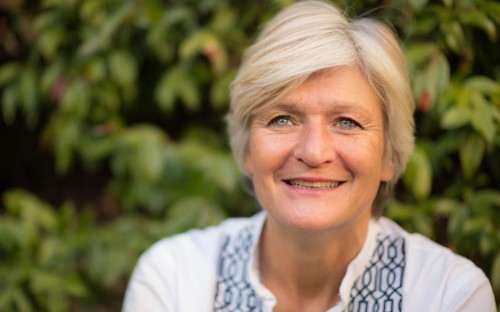That was the quote above Caroline Whaley’s desk for the duration of her one-year MBA at the UK’s Lancaster University Management School. After graduating, she was recommended to a headhunter and landed a dream job at Nike.
Over 17 years in leadership positions at Nike, Caroline helped reposition the Nike Running brand, worked with the Nike Foundation to empower adolescent girls in Africa, and managed teams the US, the UK, Canada, and the Netherlands – she and her husband moved house 10 times.
Faced with another relocation, she left Nike in 2013. A year later, she started her own coaching and consulting business, Tiger for a Day. Alongside it, she also co-founded Shine for Women, a company designed to propel more women to the top levels of organizations, and boost numbers of women in business.
Caroline quit her job of ten years at an adventure travel company to kick-start her career with the Lancaster MBA – now ranked among the top-50 MBA programs in the world by the Financial Times.
In the current Lancaster MBA class, 20 nationalities are represented, and 46% of students are women. Even when Caroline joined Lancaster on a scholarship back in the mid-1990s, the school had a higher proportion of women on its MBA program than most. She’s since returned to the school to coach new generations of ambitious MBAs.
Why did you decide to pursue the Lancaster MBA?
I got to the point in my career where I couldn’t see what I should be doing next. I’d learnt a lot organically, but there were some big gaps in my knowledge that I needed to fill.
I looked at a few business schools. In those days, you were lucky to get 10% or 15% women on an MBA program. I wanted to work in a more balanced group, and Lancaster were very keen on getting more women into the MBA program, It was also very international in terms of content, which a lot of MBAs weren’t at the time.
What does Nike look for in its job applicants?
When I was at Nike they were really looking for a cultural fit. Values-wise it played to people who were competitive and driven, but not arrogant. The thing that drives Nike is youth, and a real cultural curiosity was an important part of it.
I think it’s broadened now. People come from a much wider variety of backgrounds. They look for cultural contributors rather than just a fit.
How else did things change over your 17 years working at Nike?
Technology was the biggest thing. When Nike+ was launched in partnership with Apple, it was the first wearable tech out there. Now it’s the norm.
When I started, I was working in marketing and we were the guardians of the brand. We were very aware of how the brand was being presented. Now, with advances in tech and consumers playing a more active role in brands, you have to let go of control, and inspire and engage people in a different way. That’s a massive shift, especially for a brand like Nike with such a strong culture.
Can you tell us something about working at Nike that most people wouldn’t know?
There’s an extraordinary belief that permeates the organization that everything is going to succeed. Failure is never an option. People might imagine that it’s quite arrogant and brash, but it’s not at all. It’s an incredibly positive atmosphere, full of smart, good people who care passionately about what happens.
There’s real autonomy. Management might create a vision for whatever needed to be done, put the smartest people on it, and let them work out how to achieve it. It was a bit of a sink or swim culture. A lot of the values you’d expect in a great sports team were played out across Nike.
What advice do you have for MBAs looking to become leaders in business?
The Lancaster MBA was an incredibly defining year for me. It was where I learnt that I was never going to be the smartest person in the room, but I was the person that could get people together to make things happen. That self-awareness - or emotional intelligence - is one of the most defining factors about leaders. And employers recognize that.
Most companies now are going through so much complexity and change that the people who are surviving are people who are curious, agile, and aware, more than intellectually brilliant. I see that come up again and again with organizations that I’m working with.
What is the future for women in business? Will top-level CEO positions soon be occupied by as many women as men?
I’m optimistic. Organizations are realizing that those with more diversity at the top are the ones that are succeeding. For younger women at MBA level, the equality is so much clearer now.
I don’t know whether the change will happen within my career lifetime or not, but there’s absolutely no reason why not.
This article was originally published on BusinessBecause on April 10th 2017. The article was re-published on July 27th 2018.
Student Reviews
Lancaster University Management School







